Miss Julie
There’s probably little to be gained from comparing this updated, relocated version of Miss Julie with Strindberg’s original text – or with the many, many other adaptations different mediums - that have been made since its premiere in 1888. A more interesting question is why this play is performed, revived and adapted over and over.
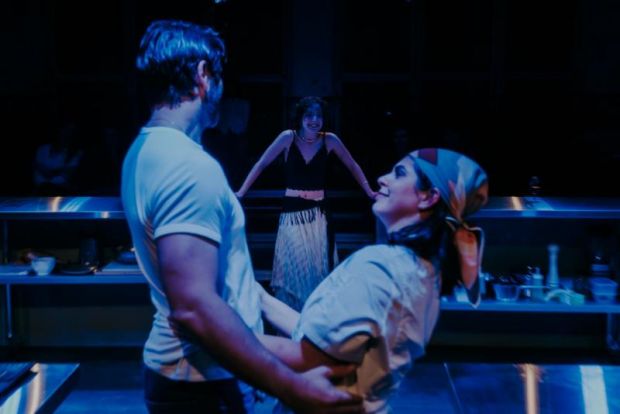
Suffice to say that here, when we enter the fortyfivedownstairs playing space, we find, instead of a manor house kitchen, Angelina Daniels’ contemporary relocation: we’re looking at a buzzing Greek restaurant – ‘Ioulia’ - with busy waitstaff, chefs, kitchen hands, guests at tables and the centrepiece, a rectangular kitchen of modular stainless steel bench tops, a sink, shelving and cookers.
If we’ve been watching – most recently – The Bear, or any of the many plays or movies set in kitchens, going all the way back to Arnold Wesker’s The Kitchen (1957) - plus any Gordon Ramsey intervention – we know about the heat, the pressure, the rivalry, the aggression, and the hierarchical command structure. Indeed, director Harry Haynes’ intention (made clear in his program note) is to play out this class warfare, psychosexual drama in this hothouse setting.
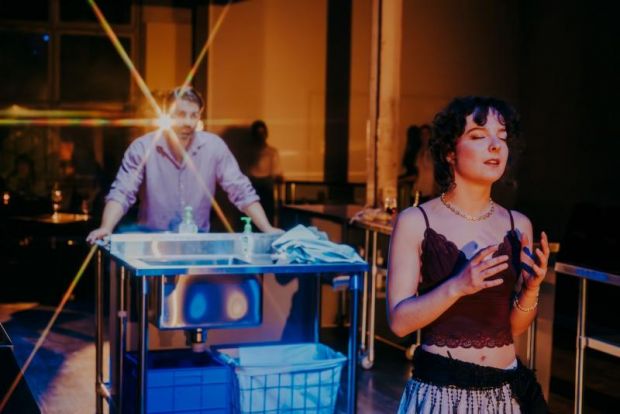
Here Kristina (yet another powerful performance from Izabella Yena) is the realist moral centre, and the restaurant’s Chef, while John (a brooding Adam-Jon Fiorentino) is sous-chef. The catalyst or protagonist is, of course, Julie (Annalise Gelagotis), nineteen-year-old daughter of the restaurant’s, rich and feared owner. The restaurant, in which she certainly does not work, is just the regular setting for her largesse and shenanigans. Gelagotis, in her debut stage role, sets up the character as a perpetual party girl, restless, flirting, provocative, but also something of a ‘manic pixie’. It’s a fine performance. Gelagotis never relinquishes the poor little rich girl but she reveals the character’s touching hurt and confusion - as well as the steely distinctions and realism of the rich.
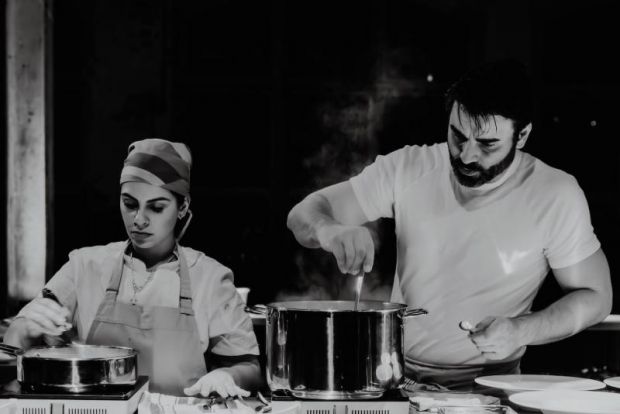
It may be inappropriate these days to mention physical appearance, but surely it forms our conception of character. Gelagotis is so tiny, so delicate, almost like a child, that we are distracted from the femme fatale.
That said, underneath her careless, reckless demeanour, Julie wants John – but does she really? Or is he another spoiled child’s toy? But John, despite himself and his being engaged to the strong, no-nonsense Kristina, wants her. In keeping with Strindberg, it’s their sexual relationship that leads him – as if sex with the boss’s daughter changes everything - to propose his delusional idea of their setting up a restaurant – in this case, in Corfu.
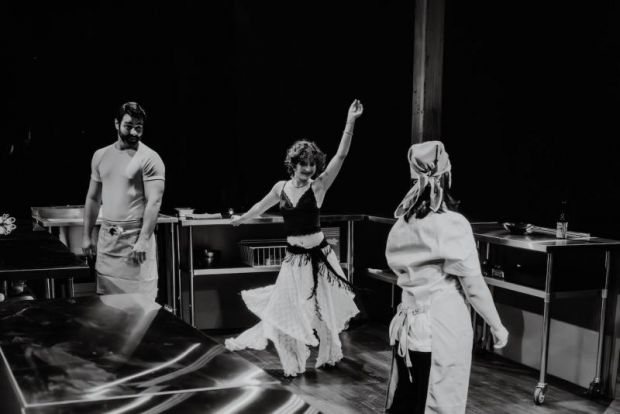
To my mind there are curious anomalies to this production. The restaurant and kitchen supply the clamp of pressure and exhaustion, but does that enhance the drama at the centre? The restaurant milieu also diminishes the class element in the drama. In this contemporary setting, Julie’s father may be a hugely wealthy restaurateur, and John may be only (?) an itinerant if widely experienced sous-chef, but is there that much of the perilous and presumptuous crossing of class barriers?
The setting does, yes, go towards suggesting a no privacy fishbowl effect, emphasised by the constant hovering or lurking presence of the fourteen-member, silent ensemble (all those staff we see at the start). But their constant intrusions might have been achieved by less stylised means – as could some acknowledgement of them by the lovers. The ensemble’s rearranging of the kitchen modules into new configurations merely puzzles and breaks flow. There’s a feel here of a director’s concept that doesn’t quite gel with the naturalism of the performances.
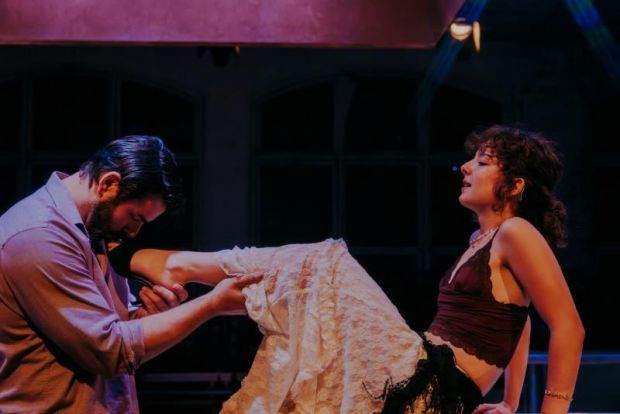
When Kristina strides back on stage – guessing at everything but unfazed by it – we are almost relieved not least because of Yena’s grim realist performance. The adult has returned. Misogynist Strindberg clearly intended the transgressive female to be punished, but in this update, the ending is just as equally contrived and unconvincing. Up to that point, we have three nuanced and insightful performances. There’s no need to be ‘faithful’ to the original text – as noted, there have been many adaptations. The contemporary update and relocation are potentially good ideas but here they distract and obscure the fascinating power that makes this strange, difficult play endure.
Michael Brindley
Photographer: Matto Lucas
Subscribe to our E-Newsletter, buy our latest print edition or find a Performing Arts book at Book Nook.

